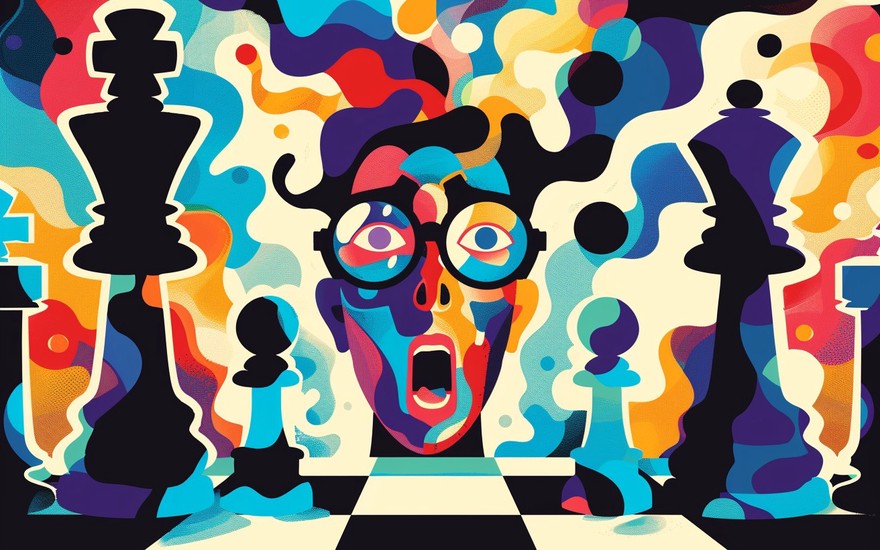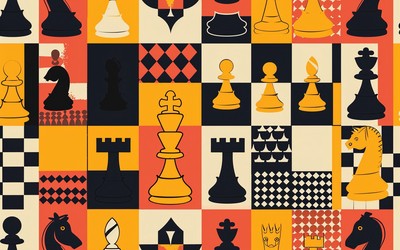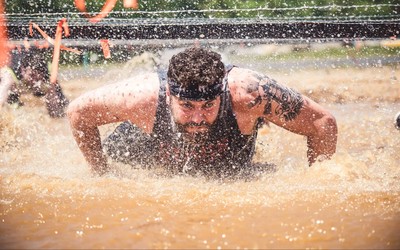
How Do You Stop Blundering?
The hardest problem to solve in chessAs a chess coach, I find blunders one of the hardest issues to address. If a player lacks knowledge – for example, they don’t know what a backward pawn is – I can explain that easily enough. And if they lack skill – say, they stop their calculation too early – we can work on that as well. But blunders don’t seem to be a lack of either knowledge or skill.
By definition, a blunder is a move that the player could easily recognize as a mistake under normal circumstances. It wouldn’t be helpful for me to say, “You know, in chess, it’s not a good idea to hang your queen.”
And in most cases the blunders make up a small fraction of all moves. (If you’re hanging pieces every move, I hate to tell you those aren’t really blunders, you’re just not that good at chess!) So the player has the skill to play solidly, they just fail to apply it occasionally.
But blunders are so impactful that even an occasional blunder can have a huge effect on your win rate. If you blunder a single time in a game, there’s a good chance that single move will cost you the game.
That also comes with a silver lining: you don’t need to completely eliminate blunders to increase your rating. You just need to reduce the frequency with which they occur. That’s good news, because it’s probably not possible to get rid of blunders entirely.
An average game lasts around 40 moves, so if you blunder once per game, that’s around 2% of all moves. If you can get that down to 1%, now it’s only every other game – a huge difference.
The big question, of course, is what do you actually do to blunder less? I don’t have a silver bullet. I wish I did – not only would I use it to help my students, I would stop blundering in my games too!
But I do have some ideas:
The first is applying a checklist. Blunders are often the result of a thought process error, so creating a list of all the things you want to do every move can be helpful. Strong players generally don’t use such a rigid process, but by practicing it for a while, you can develop better habits.
For example, after each of your opponent’s moves, you can ask yourself, “What are all the things this move does (and no longer does)?” And before each of your own moves, you can pause and ask yourself, “Am I missing anything?” My friend Ono has a great article on this approach.
As a junior I was told to write my move down on my scoresheet and only make it after doing a final blunder check. This is helpful as a process, but writing down a move you haven’t made is illegal according to FIDE, and dubious according to USCF (the rules are somewhat unclear). So I can’t recommend it. But you can simulate the same process by visualizing your intended move on the board and doing a final check.
This can be helpful, but in my experience, there’s only so much you can do by consciously changing your thought process during the game. We’re creatures of habit, and in the heat of battle, we usually revert to what’s most comfortable. For that reason, if you really want to reduce your blunders, you’ll probably have to put in some work away from the board as well.
For that, I’d suggest working on exercises that emphasize the opponent’s resources. A blunder typically occurs when you have missed something the opponent can do. In chess, stopping what your opponent can do is just as important as doing your own stuff, but most tactics books focus on finding great moves for yourself. Fortunately, there are a few resources that focus more on the opponent’s point of view:
- (Beginning) Mastering Defensive Techniques by Susan Polgar. This is available as a book or Chessable course.
- (Intermediate) Survive & Thrive by Dalton Perrine. To my knowledge this is only available on Chessable.
- (Very hard) Recognizing Your Opponent’s Resources by Mark Dvoretsky. This is also available as a book or on Chessable.
Working through whichever of these is appropriate for your level could be very helpful.
Finally, some people say that blunders are the result of fatigue. It’s difficult to test this directly, but the idea makes sense. To work on your stamina, I’d suggest (at least occasionally) doing a very difficult training session, where you solve difficult calculation problems for a long time. “A long time” can mean different things depending on what you’re used to, but it could be anywhere from one hour to four hours for the real sickos. I have a longer post on that idea here.
While all of those ideas can be helpful, to be honest, this is something I still struggle with. So I’d love to hear from you: Have you found any techniques or practices that helped you blunder less?
If you liked this check out my newsletter where I write weekly posts about chess, learning, and data: https://zwischenzug.substack.com/
Want to simplify your chess training? Check out The Chess Gym, my online chess learning community, where we focus on the most impactful techniques for leveling up your game.
And if you're interested in 1:1 coaching, get in touch here.
View more blog posts by CheckRaiseMate

The Woodpecker Method, Revisited
It's been used to win GM norms and gain 500 points. Is this the ultimate chess training method?
Priyomes
The most important chess concept you've never heard of
Comparing Lichess and Chessbase
Do not try this at home!
